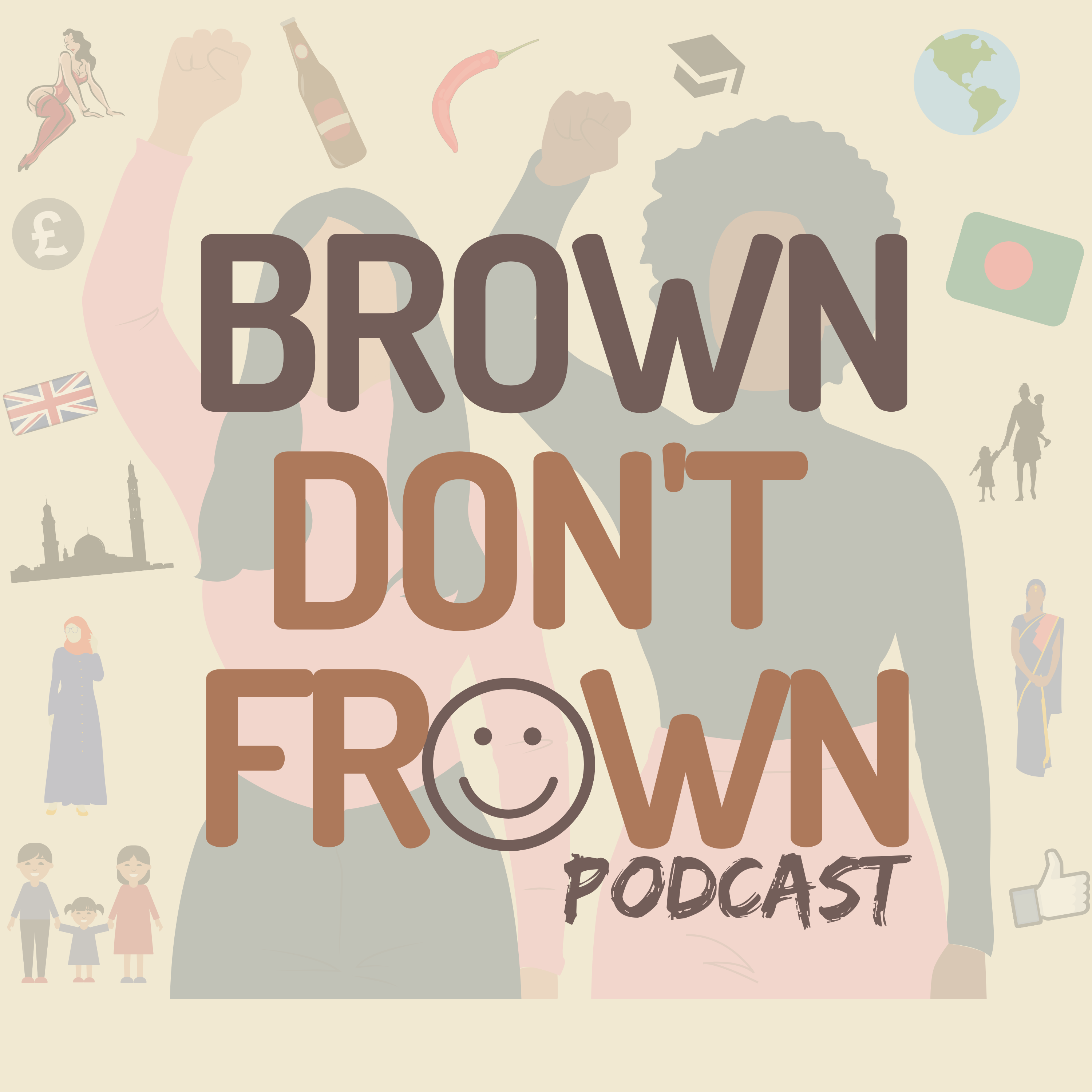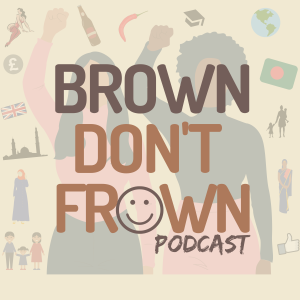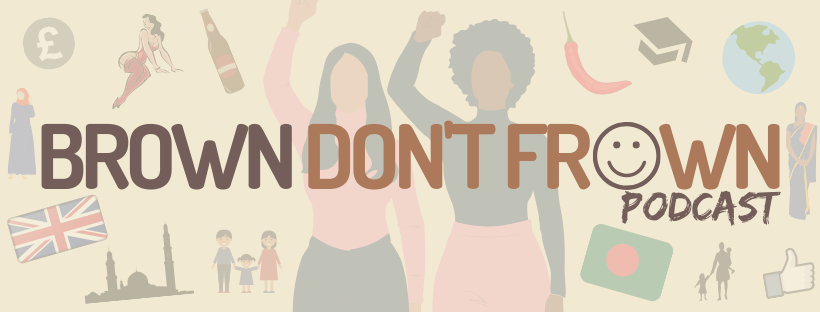
Brown Don't Frown was borne out of a personal journey with womanhood. As a British Bangladeshi, navigating mainstream Feminism often felt exclusionary to me because it didn’t seem to value the experiences or views which shaped my grandmother’s, aunts’, mother’s or friends’ lives. Through this podcast, we seek to build a more inclusive discourse, which breaks down presumptions about different cultures, and shines a positive light on the stories of underrepresented women. Featuring new guest(s) from different walks of life in each episode, Brown Don’t Frown seeks to engage ordinary women and facilitate openness towards entirely new perspectives. It hopes to spark honest and meaningful conversations about intersectional feminist themes in contemporary society with the acknowledgement that our views are shaped by our cultural, racial, religious, social and political experiences. Whether it's discussing society's preconceptions about the Hijab with a British-born Jamaican Muslim woman or examining the impact of gendered expectations on our ability to grieve on our own terms, we hope listeners finish each episode feeling more rounded than they did before. Follow us on: Instagram: https://www.instagram.com/browndontfrownpodcast/ Twitter: https://twitter.com/bdfpodcast?lang=en Facebook: https://www.facebook.com/browndontfrownpodcast LinkedIn: https://www.linkedin.com/company/browndontfrownpodcast
Episodes

Sunday Jul 11, 2021
Sunday Jul 11, 2021
The final episode of season 4 is here and joining us is Dina Begum, a British-Bangladeshi cook and writer who is passionate about highlighting the underrepresented recipes and authentic food traditions of Bangladesh.
For Bengalis and Bangladeshis, and across much of the South Asian continent, food is inseparable from humanity, community, purpose and love. I ask Dina why food is so important to her and whether she always saw herself as a cook. Food is a very visceral experience. Flavours, spices or certain dishes can be nostalgic if we associate them with a particular memory or event. Food can symbolise traditions, rekindle a sense of identity and bring people together; that’s why Bengali hospitality is second to none. We look at why food is so critical to familial spaces and what it symbolises for us.
In the UK, most of what we class as “Indian food”, is curated by Bangladeshi restaurant owners and chefs. The recognition and appreciation for homemade-style food and the desire to seek out unique flavours is a more recent phenomenon which has empowered the Bangladeshi diaspora to spotlight their cuisine, rather than grouping it under “Indian” or “curry”. Dina has written about how recipes are passed down from one generation to the next, usually not by writing them down, but by demonstrating. We consider the contrast between the observation/estimation styles of Bangladeshi cooking versus the meticulous measurements in English recipes. Finally, we talk about our favourite Bangladeshi dishes and our three staple spices for the kitchen.
You can follow Dina on Twitter: @dinasfoodstory.

No comments yet. Be the first to say something!